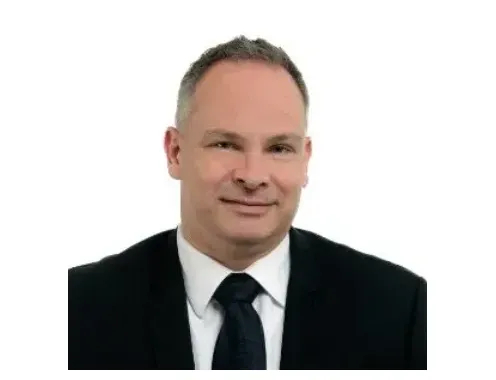Alain Bayer – CHRO at CRH Switzerland


Can you give our readers a brief summary of your HR career and how you became CHRO for CRH Switzerland?
At the beginning of my career, I was working in operations and ended up in HR by accident really. I worked for a couple of years in Swiss railways in various HR roles and then became the Head of HR for the Public Transport system for Basel city at 30. Moving onwards in my career, I became Head of HR for Jet Aviation, a company in the private aviation industry and was there for 6 years and got more exposure into international business with them. I really enjoyed the international part. From there I joined Panalpina, a global freight forwarder and was working for them for 8 years in various roles including a 3-year stint in Miami. I came back to Switzerland with my family and was looking for a local role as wanted to travel less and have more family time. I was lucky to find the role of CHRO at CRH Switzerland.
How did you plan out your career development path?
Actually, there wasn’t much planning. I just followed my interests and generally my interests were; where can I learn? That was basically driving me and my career path. I also have to say, I was lucky to be in the right place at the right time sometimes. I had good mentorship which really helped me. There was no career goal of to become Head of HR here or there, but always asking myself what can I learn in that role, what interests me and where can I have fun and get energy back from it.
Looking back through your established career, what would you identify as a personal highlight?
I think there are several. The thing that I think from a HR career perspective that really made a difference was my first engagement to the west coast of Africa where I had a task to build up a HR structure and teams which haven’t existed before in places like Angola, Congo, Gabon, Cameroon and Ghana. It was so interesting because obviously Africa is a different continent. I learned that it’s not about the same values or same way of working. I learned there that things can work completely differently and you have to work around things and work differently for success. It made me aware because I assumed I knew a lot about HR, going there to use my skills and tools to build up HR wasn’t good enough. There were new things I had to learn to be able build up something in HR in a different environment. This experience made me aware that if I assume that I know it’s not going to be sufficient.
What motivated you to join CRH?
CRH is a great company with great values and has a lot of humble, down-to-earth people. It’s hard- working. More specifically to my role in Switzerland, I think the business has huge potential. What motivates me here is the transformation the business has to go through. I don’t think this business will be the same in 20 years’ time. We have to think about what do we need to do now, what kind of senior people do we need to hire for our organisation to make sure we can achieve success and remain ahead of the market and our competitors so that in 15 or 20 years we will still be around.
What are your current challenges in your role?
There are numerous but the main challenge is that this is a transformation project. There is that famous saying that ‘culture eats strategy for breakfast’ and I think that is what's happening right now in this company here in Switzerland. Four years ago, we put in place a strategy which I believe is good and we have created structure to implement that strategy. However, I think what we haven’t looked close enough to and understand is, does the leadership culture really support the strategy? And at this stage it doesn’t. So we need to work very hard to change that leadership culture. Also, we need to do some good work to improve sales.
What recruitment challenges do you face?
At this stage, the main challenge is to keep the balance for a business which works really locally; so have local connections and local people but also bring people on board which can work in a big international group and understands the mechanisms of working in an international group or in a matrix organisation. That’s a challenge because usually if you want to stay locally connected you recruit from smaller sized businesses, maybe family owned and often they do not have any experience or understanding of how a large multinational business works.
Moving away from your professional life, what do you like to do outside of your work?
As I was travelling a lot in the past, now it’s really time for my family. I try to spend as much time as I can with my kids. They are into different sports so I spend my weekends at tournaments of hockey or handball and really enjoy seeing them grow up.
If you could choose an Artistic/Musical/Sporting career, who would it be and why?
I would love to be a musician. The reason for that, I think, is the way you can express yourself with an instrument is a great way to communicate and connect with other people without using words. It’s the global language that everybody understands and you don’t need to explain yourself. I think people who listen carefully will understand what you’re telling them without using words.
*Views and opinions contained within our Executive Interviews are those of the Interviewee and NOT views shared by EMEA Recruitment.






You can also use your social account to sign in. First you need to:
Accept Terms & Conditions And Privacy Policy